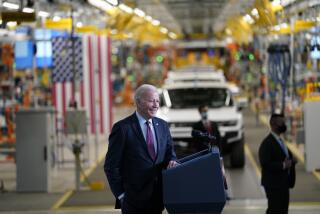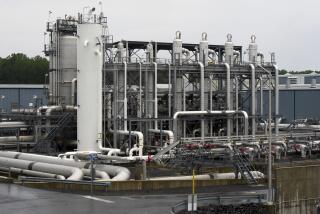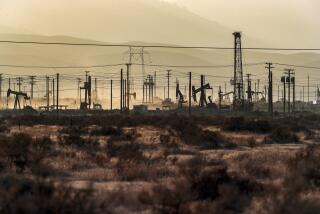Keystone pipeline decision could be delayed until after election
The Obama administration is considering a move that could delay a decision on the controversial Keystone XL pipeline by requiring sponsors to reduce the project’s environmental risks before it can be approved, according to people with knowledge of the deliberations.
The step might put off a decision until after the 2012 election and be a way for the White House to at least temporarily avoid antagonizing either the unions that support the pipeline or the environmental activists who oppose it as President Obama gears up for his campaign.
The 1,700-mile Keystone XL, which would run from Canada to the Texas Gulf Coast, needs a permit from the State Department because it crosses a national border. The administration has said the State Department probably would decide on the so-called presidential permit by the end of the year.
Until recently, the pipeline seemed to be heading for a green light. Its union supporters tout the jobs it would create. And administration officials say the oil that would flow south from Canada’s oil sands — viscous petroleum trapped in clay and soil — would improve energy security.
But the plan has become a major issue for environmental groups, which object to running a giant pipeline above an aquifer that holds water used by large parts of the Plains states. They also say producing crude from oil sands would generate huge amounts of the gases believed to cause global warming. Environmental activists have threatened to withhold campaign donations and stop volunteering for Obama’s reelection effort.
Requiring that a new route be found to avoid the most sensitive areas, or that further steps be taken to limit greenhouse gas emissions, could help the administration out of a jam. Assessing the environmental effects of a new route, for instance, could take months.
On Sunday, thousands of onetime Obama supporters, including donors, environmentalists, campaign volunteers and at least one former White House staff member, formed a human chain around the White House to highlight the growing opposition to granting Keystone XL a permit.
The State Department is now determining whether the project is in “the national interest,” a process that entailed holding hearings recently along the proposed route. As a result, some issues have become more “salient,” said a State Department official familiar with the process, “including the routing issue in Nebraska.”
“The State Department is committed to conducting a thorough, rigorous and transparent process that leads to a decision that is in the national interest, including, if needed, gathering and assessing additional information,” said the official, who was not authorized to comment publicly about the issue and spoke on the condition of anonymity.
Any new assessments open up the possibility of further delays.
TransCanada, the company applying to build Keystone XL, said it had heard nothing to indicate that the State Department’s decision would be put off. It has opposed any delay, saying the cost would be prohibitive.
For many opponents of the pipeline, a delay is inadequate if it fails to take into account what they say is the flawed role of the State Department in the permit process. Pipeline opponents, including members of Congress, have demanded an investigation after publicly released emails showed State Department diplomats working closely with Canadian officials and TransCanada lobbyists on developing oil sands and easing the permit process.
Other critics do not want the pipeline built at all.
“The tar sands are awful and they need to stay in the ground,” said Courtney Hight, 32, a former Obama organizer and former staff member for the White House Council on Environmental Quality. “Building the pipeline is not the way to break free from oil.”
Hight was joined by several thousand peaceful protesters in Lafayette Park, just north of the White House.
Aretha Franklin’s song “Respect” played over loudspeakers, and demonstrators, including a farmer from Kansas and townspeople from Nebraska, walked onto streets east and west of the White House and completed the encirclement just south of it.
The permit process for the $7-billion pipeline has already taken more than three years.
Further delays could make the pipeline financially unfeasible for TransCanada and the companies that plan to ship crude through it. The oil industry has argued that if Keystone XL does not get a permit, TransCanada and its clients would develop the oil sands anyway and ship the crude west in a pipeline to the Pacific Coast. But environmentalists contend that there is far too much local resistance in Canada for that to occur.
“My guess is, if there is a delay, it could very well kill the pipeline of its own weight,” said John H. Adams, founding director of the Natural Resources Defense Council, at Sunday’s rally.
Peter Nicholas in the Washington bureau contributed to this report.
More to Read
Start your day right
Sign up for Essential California for news, features and recommendations from the L.A. Times and beyond in your inbox six days a week.
You may occasionally receive promotional content from the Los Angeles Times.







